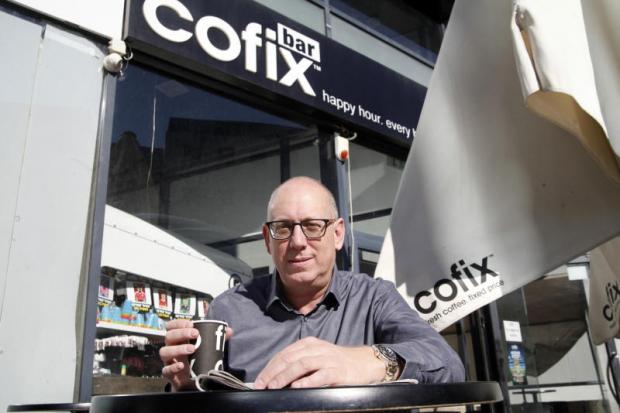
Tel Aviv/Moscow: Near Red Square in Moscow, Irina Kushnir waited for her order of coffee. As soon as she learned that a new coffeehouse was selling all items for 50 roubles ($0.82), the 28-year-old graduate student decided to forgo the nearby Starbucks and join the queue outside the tiny, cable car-like stand.
"I haven't seen any other coffee shops in Moscow offering cappuccinos at this price," she said, shuffling her way forward in the line of six people.
This is the first Russian branch of Cofix Group Ltd. It won't be the last. Founder Avi Katz, who started the chain in Israel in 2013 and now is the country's biggest coffee-stand operator, has big plans.
In addition to Russia, he's planning to expand into the other two top branded-coffeehouse markets in Europe: the United Kingdom and Turkey. He's also about to open New York and Madrid offices for Hagshama Fund, his $650 million real estate investment firm.
But in the competitive business of coffee, it's one thing to succeed in your home country. It's another to try your hand in foreign lands, especially three that are undergoing political or economic turmoil.
All the while competing against coffeehouse behemoths Starbucks and Costa Coffee. Though absent in Israel, Starbucks owns the most stores in Europe, followed by Costa Coffee.
Katz, 54, says he's counting on the Cofix model: Strip out the chairs and waiters. Sacrifice space and price for volume. Most importantly, find places where the difference between what people pay in shops and what it costs to make coffee at home is huge. Then drastically undercut the competition.
His approach is embodied by the fact that he can't meet with a reporter in one of his own shops -- too small. Instead, he's nursing a large cappuccino he doesn't like in a Tel Aviv coffeehouse he doesn't own.
"A new market is opening up to those who couldn't afford outside coffee," said Katz. "And for those who already can, they save money. This is my revolution."
Katz found himself a wealthy man in 2008, after he sold his Israeli dollar-store chain for 180 million shekels ($47 million). The next year, he founded Hagshama, which lets small investors allocate investments to global real estate projects.
The fund now has about 23,000 investors and operates a second office in London. His fund has yielded an average annual return of about 15%, according to local press reports.
Katz opened the first Cofix branch in Tel Aviv two years after the largest protests in Israel's history were sparked by rising prices for basic goods like cottage cheese and milk.
At the time, Israelis were paying as much as nine times the cost of a homemade cappuccino, he said.
Cofix now has 161 stores across the country.
Cofix in October opened the Moscow shop, the first of up to 1,000 planned Russia branches, for an investment of about $2 million.
Roughly equal partners in the venture are Melson's Group, the Russian food distributor, in charge of purchasing; and ADG Group, which is committed to investing about $930 million to remodel 39 Stalin-era theaters into commercial centres throughout the capital. They will house the Cofix shops.
At 50 roubles, prices are about one-fifth the cost of a cappuccino at Starbucks. That could serve as a respite to Russians, whose wages have fallen due to economic sanctions by the United States and European Union, and who face a second year of economic contraction.
Still, Katz says that high rental costs in one of the most expensive cities in the world will force Cofix to sell 1,700 items per day to break even, compared with 1,000 in Israel.
"Coffee is a high margin product but you have to sell a lot of it to make money,'' said Jeffrey Young, chief executive officer of research and consultancy firm Allerga Group Ltd.
Cofix has added another two branches in Moscow since the opening, Katz says.
Katz says the other major cities he is targeting -- London and Istanbul -- match his main criterion: Coffeehouses charge six to nine times more for a medium cappuccino than the $0.40 the ingredients cost consumers, according to data from Allegra.
The timing, however, may be problematic there as well. The UK is still digesting the impact of its decision to leave the Europen Union, and confidence among services firms has fallen since.
"Katz faces psychological barriers, too. People living in major cities like London are less sensitive to high coffee prices, and many want their coffeehouse to be more than a to-go factory,'' said Young.
"That partly explains why Caffix, the London cafe that offered everything on the menu for one pound, failed earlier this year,'' he said.
"Coffeehouses are places where people talk, relax and take time out of their busy day," said Young. "They've become almost like our sanctuary. For that, people are happy to pay $5 for a cup of coffee."